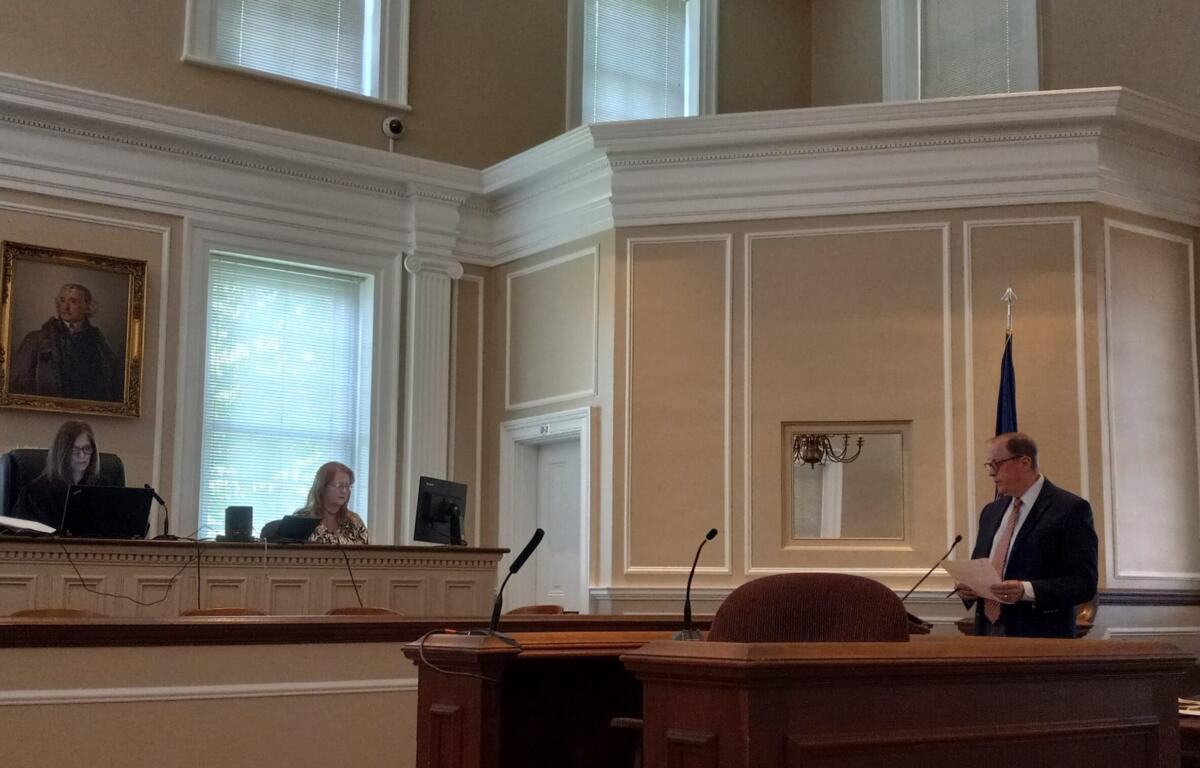CHARLOTTESVILLE, Va. (WINA) – July 12, 2023, marked 125 years since John Henry James was lynched for the alleged rape of a white woman in Albemarle County.
The indictment came down with full knowledge of the grand jury that the black Charlottesville man was dead. Then, as now, it was unlawful to indict a dead person.
Inspired by soil from the site where James was both hanged and his lifeless body riddled with several dozen bullets in a museum, Albemarle Commonwealth Attorney Jim Hingeley filed a motion that the charge be dismissed.
“It is a real ruling,” he said. “It’s a bit unusual that something like this comes up 125 years later. But there was an indictment that was in the records and now there’s not. It was dismissed.”
Jalane Schmidt, director of the UVA Karsh Institute of Democracy Memory Project, served as the hearing’s sole witness. She noted that posthumous indictment was just one of the case’s shortcomings.
“The problem is that there are conflicting accounts,” she said, “which is something the prosecutor pointed out, that you’re not able to charge when you have so many conflicting facts.”
The James lynching is one of about 4,400 included in the National Memorial for Peace and Justice in Montgomery, and one of about 70 documented lynchings of Black people in Virginia from 1880 to 1930.



